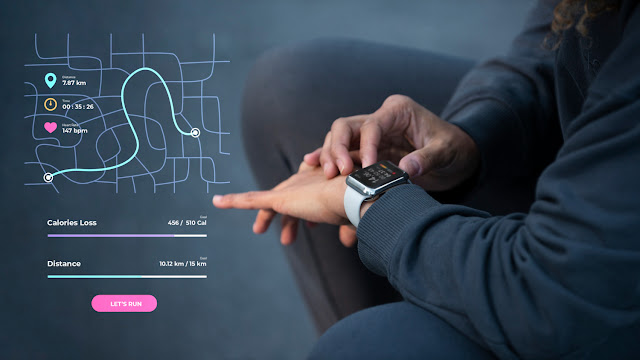Life will always involve some level of stress. We all encounter stress at some point in our life, whether it be related to jobs, relationships, finances, or health. Chronic stress, however, can have a negative impact on both our physical and mental health, increasing the risk of diseases like anxiety, depression, hypertension, and heart disease. Therefore, it's crucial to discover techniques for controlling and lowering stress levels. You're in luck if you use a Fitbit! Eight tested methods to lower stress with your Fitbit are shared in this post.
A good way to lower stress is to set goals and monitor your progress. You can set daily and weekly goals for calories burnt, active minutes, and steps taken with your Fitbit. You'll feel more accomplished and in charge of your daily routine by setting realistic goals and monitoring your progress. This could lower your stress levels and enhance your general health.
Simple yet powerful stress-reduction techniques include mindful breathing. It entails concentrating on the current moment while taking calm, deep breaths. You can follow the Relax app on your Fitbit's instructions to perform a mindful breathing practice. Just choose the "Relax" option on your Fitbit, then adhere to the directions. You may feel more at ease and less stressed as a result of this.
The key to lowering stress levels is getting adequate sleep. You may monitor your sleep patterns and set alarms on your Fitbit to remind you to go to bed at a regular time every night. For better overall health and to lower stress levels, aim for 7-8 hours of sleep each night.
A great strategy to lower stress and enhance general well-being is to practice thankfulness. You may keep a daily gratitude journal on your Fitbit by using the Gratitude app. This can assist you in changing your attention from negative to good thoughts, so lowering stress levels, and elevating your mood.
Stress levels can be lowered by taking breaks and moving around during the day. You may track your progress and set reminders to move every hour with your Fitbit. You may feel more energized and less stressed during the day as a result.
Meditation and yoga are tried-and-true methods for lowering stress. The yoga and meditation applications on your Fitbit can help you through practice. Simply choose "Yoga" or "Meditation" on your Fitbit, then adhere to the directions. You may feel more at ease and less stressed as a result of this.
One key strategy for lowering stress is to connect with others. You can participate in challenges and groups with your Fitbit to meet other individuals who have similar interests. As a result, you may feel more connected and supported, which will lower your stress levels and enhance your general well-being.
Taking care of oneself is crucial for lowering stress levels. You may monitor activities like journaling, taking a bath, and listening to music with your Fitbit's Self-Care app. By doing so, you may make self-care a priority and experience less stress throughout the day.
The popular wearable device Fitbit has been more well-known in recent years. There are numerous advantages to using one, and it is made to assist users in tracking their physical activity and health information. Some of the main advantages of a Fitbit are as follows:
An increased level of physical activity, better sleep, better heart health, weight loss, accountability and motivation, customized objectives, and social support are a few of the advantages of a Fitbit. A Fitbit can be a useful tool in helping you achieve your goals, whether they involve increasing your exercise level, losing weight, or simply tracking your health statistics.
Users of Fitbit, rejoice! You can take charge of your physical and emotional health using your Fitbit by adopting these 8 tested methods for reducing stress. There are many ways to lower stress levels and enhance your general well-being, including goal-setting and progress monitoring, mindful breathing exercises, getting enough sleep, cultivating gratitude, taking breaks and moving around, engaging in yoga or meditation, building relationships with others, and practicing self-care. So put on your Fitbit and start on the path to a better, less stressful existence!



_11zon.png)

No comments:
Post a Comment